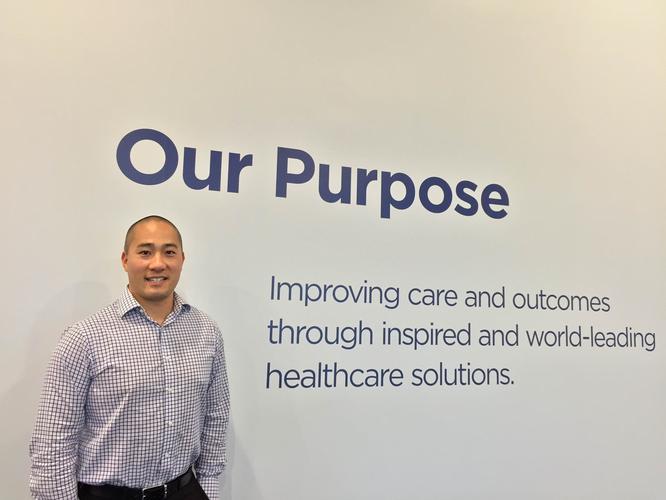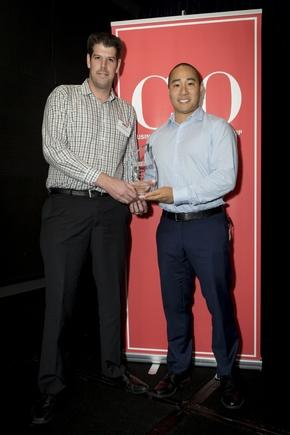

Helping the next generation of ICT leaders
Five years ago, he cemented a stronger tie with AUT, when he joined the Industry Advisory Committee Board at AUT’s School of Computing and Mathematical Sciences.
Along with the other Board members, he listens to the students pitch their projects for the term.
Fong says the Board members will assess the merits of the project and provide feedback before the students proceed. They also provide feedback on the courses at the school, to ensure the education provider is in step with what the industry needs.
Have a big funnel to digest all those ideas and ask yourself what needs, problems and challenges can be solved.
Fong became the first ICT Vice President at the company, as before that, the highest ranking ICT executive was group IT manager, to whom he reported.
The role allows him to work across all facets of ICT and business units, for both internal operations and product development.
He leads a team of 120, of which 20 are based in their overseas offices. Research and development is based in New Zealand, and manufacturing across New Zealand and in Mexico.
Whilst Fong continually feels honoured with his career progression through the opportunities at Fisher & Paykel Healthcare he says he was not surprised about his career trajectory.
“I was more a technologist and engineer than a historian,” he says. “I love futures, innovation, and am interested in business in general, what makes the New Zealand economy great, and how to make it become an exporting economy.”
He believes the seeds of his leadership streak were evident back at high school and at university, when he always volunteered to lead a project.
His interest in business was sparked by his parents, who owned a Chinese food takeaway store. He says their initial venture was successful, so his father sold it and started a new one. The second takeaway shop did not do so well, he recalls.
Fong was then in his teens and wished he was able to help his father more in the business. Analysing it now, he says he would have assessed what happened: Was it the product, the place, the promotion, the customer service, the price?
As he progressed to ICT roles, he realised he was exposed to a lot of things across the business. He also got mentors from outside ICT, but he went further. “I wanted to get a good foundation.”
Read more: The inaugural CIO100 awards finalists and winners
''As an ICT professional, you help solve business problems, build solutions and systems and understand the requirements of the business. You test, trial, see it live, support the users in what they do, and see what works, what are the benefits and efficiencies it provides and continually improve and refine,'' he says.
“You learn user engagement and key components of the business but you may miss core parts of marketing, finance, sales, supply chain management, manufacturing and operations,” he says. This prompted him to take the postgraduate business diploma and then the MBA.
"The postgraduate course gave me that foundation, the MBA applies of some of the learnings, adds a layer of business management and strategy, and gave me the networking," he says, referring to his classmates. He and his classmates try to meet regularly, which is important as they work in different fields.
Staying abreast of trends in both the healthcare, engineering and manufacturing industries, as well as ICT, is important in his role. This helps you discover new ways to add value to the business and challenges you to think originally.
His approach?
“Always expose yourself to different industries, understand adjacent technologies, what others are doing, and their products and services and take time out to think how such things could be applied or how you could do it better.”
“Have a big funnel to digest all those ideas and ask yourself what needs, problems and challenges can be solved.”

Read more: Gartner on surviving – and thriving – in the digital world
CIO New Zealand would like to hear from other business technology executives working with advisory groups for academic organisations, or mentoring future ICT leaders. Email the editor divina_paredes@idg.co.nz
Follow Divina Paredes on Twitter:@divinap
Follow CIO New Zealand on Twitter:@cio_nz
Sign up for CIO newsletters for regular updates on CIO news, views and events.
Join the CIO New Zealand group on LinkedIn. The group is open to CIOs, IT Directors, COOs, CTOs and senior IT managers.
